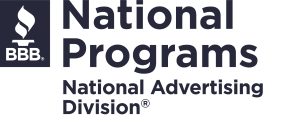
New York, NY – April 22, 2024 – In a challenge brought by TPR Education, LLC d/b/a The Princeton Review (TPR), BBB National Programs’ National Advertising Division recommended Blueprint Test Preparation LLC discontinue certain express and implied claims made in connection with its four Medical College Admissions Test (MCAT) preparation courses, including claims that Blueprint students raise their MCAT scores by 15 or 13 points on average.
+15 Point Claims
In support of the claim that Blueprint MCAT-prep students raise their scores by 15 points on average, Blueprint relied on two studies of past students who took a diagnostic test prior to the course and who met certain diligence criteria. The National Advertising Division (NAD) noted that advertising that touts a test preparation course’s ability to improve a test score can compare actual test scores to diagnostic test scores if the diagnostic results are demonstrated to be consistent with the results of the actual MCAT (and thus consumer relevant), the survey of test scores is reliable, and the basis of comparison is clear.
However, NAD found certain Blueprint claims, which refer to a 15- or 13-point increase over “official MCAT scores,” could reasonably convey the message that the improvement reflected a comparison of official MCAT tests. Therefore, NAD recommended Blueprint discontinue such claims but noted that other score increase claims can be qualified to state the comparison with diagnostic or practice test scores.
Further, NAD determined that Blueprint’s evidence was insufficient to support the +15 score claim for its Live Online course or all Blueprint courses and recommended that the company discontinue claims that:
- Blueprint students raise their MCAT scores by 15 points on average.
- The average MCAT score increase of Blueprint students is +15 points and 28% raise their MCAT scores by +20 or more points; 52% raise their MCAT scores by +15 or more points; and 83% raise their MCAT scores by +10 or more points.
- Blueprint’s Live Online Course students raise their MCAT scores by 15 points on average.
- Students who take Blueprint MCAT courses can expect to improve their scores on the official MCAT exam on average by +15 points.
- The average score improvement of all Blueprint MCAT students is 15 points.
+13 Point Claims
At the time of the challenge, Blueprint also made +13 point claims on the webpage of the Self-Paced Course, as well as on a separate webpage dedicated to the claim. The National Advertising Division (NAD) determined that Blueprint’s evidence did not provide a reasonable basis for these claims and recommended the company discontinue claims that:
- Blueprint students raise their MCAT scores by 13 points on average.
- The average MCAT score increase of Blueprint students is +13 points and 15% of Blueprint students raise their MCAT scores by +20 or more points; 41% raise their MCAT scores by +15 or more points; and 69% raise their MCAT scores by +10 or more points.
- Blueprint’s Self-Paced Course students raise their MCAT scores by 13 points on average.
- Blueprint students are statistically more likely to do well on the MCAT.
- Students who take Blueprint MCAT courses can expect to improve their scores on the official MCAT exam on average by +13 points.
- The average score improvement of all Blueprint MCAT students is 13 points.
Superiority Claims
The National Advertising Division (NAD) recommended that Blueprint discontinue or modify the claim that “Blueprint students are statistically more likely to do well on the MCAT,” but found the claim did not convey a superiority message over competitors. In so finding, NAD noted that while the claims that follow limit the claim to a comparison to all MCAT test takers, there is no evidence in the record that analyzes Blueprint students as compared to all MCAT test takers.
In its advertiser statement, Blueprint stated that it was “pleased that the NAD has provided some concrete suggestions as to how members of the test prep industry can better document the reliability, representativeness, and relevance to students of the point increases achieved on the official MCAT relative to the diagnostic test,” and that it “will comply with the decision.”
All BBB National Programs case decision summaries can be found in the case decision library. For the full text of NAD, NARB, and CARU decisions, subscribe to the online archive. This press release shall not be used for advertising or promotional purposes.
About BBB National Programs: BBB National Programs, a non-profit organization, is the home of U.S. independent industry self-regulation, currently operating more than a dozen globally recognized programs that have been helping enhance consumer trust in business for more than 50 years. These programs provide third-party accountability and dispute resolution services that address existing and emerging industry issues, create a fairer playing field for businesses, and a better experience for consumers. BBB National Programs continues to evolve its work and grow its impact by providing business guidance and fostering best practices in arenas such as advertising, child-and-teen-directed marketing, data privacy, dispute resolution, automobile warranty, technology, and emerging areas. To learn more, visit bbbprograms.org.
About the National Advertising Division: The National Advertising Division of BBB National Programs provides independent self-regulation and dispute resolution services, guiding the truthfulness of advertising across the U.S. The National Advertising Division reviews national advertising in all media and its decisions set consistent standards for advertising truth and accuracy, delivering meaningful protection to consumers and leveling the playing field for business.
Contact:
Jennie Rosenberg
Media Relations
BBB National Programs
[email protected]
Tags:
BNN, CE, Extended Distribution, Go Media, Go Media2, Google News, iCN Internal Distribution, IPS, Nexis Newswire, PR-Wirein, Reportedtimes, English
